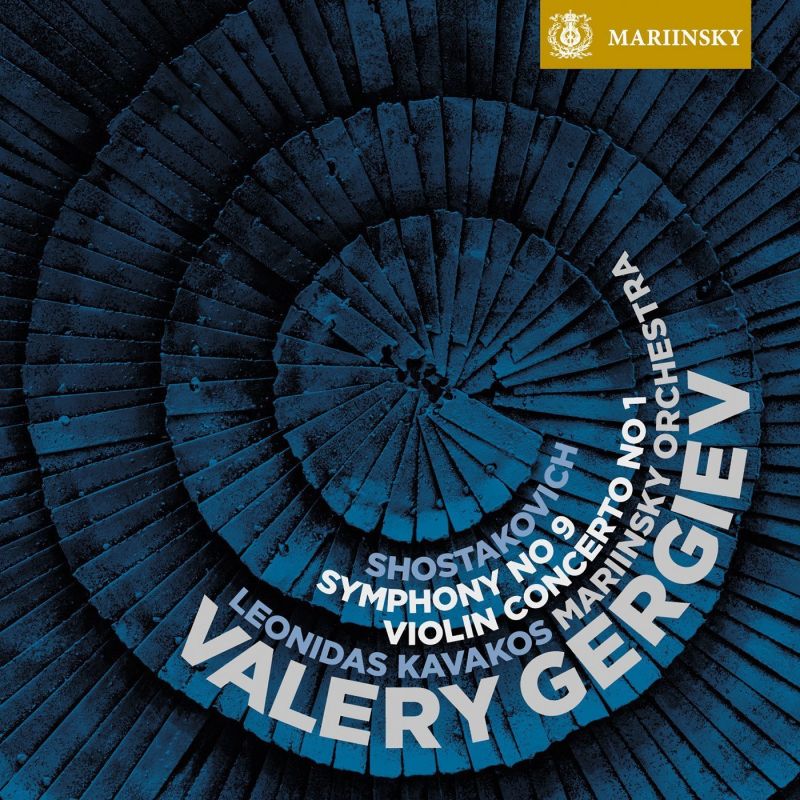SHOSTAKOVICH Symphony No 9. Violin Concerto
View record and artist detailsRecord and Artist Details
Composer or Director: Dmitri Shostakovich
Genre:
Orchestral
Label: Mariinsky
Magazine Review Date: 07/2015
Media Format: Super Audio CD
Media Runtime: 63
Mastering:
DDD
Catalogue Number: MAR0524

Tracks:
| Composition | Artist Credit |
|---|---|
| Symphony No. 9 |
Dmitri Shostakovich, Composer
Dmitri Shostakovich, Composer Mariinsky Orchestra Valery Gergiev, Conductor |
| Concerto for Violin and Orchestra No. 1 |
Dmitri Shostakovich, Composer
Dmitri Shostakovich, Composer Leonidas Kavakos, Violin Mariinsky Orchestra Valery Gergiev, Conductor |
Author: Edward Seckerson
Gergiev, for instance, makes much of the portentous trombone declamation that brings on a funeral eulogy from (of all instruments) the solo bassoon in what turns out to be a precipitately truncated Largo. That is delivered over a desolate drone in the strings – but the real kicker is that the joker in the woodwind pack cannot suppress its natural tendencies and turns his eulogy into another inane polka. Better yet, and more shocking, is the arrival of the Red Army Band in the coda of the finale, transforming the polka into a goose-stepping march. Gergiev gives that a weighty and sinister pomp. Shostakovich’s scepticism could hardly be writ larger.
The Violin Concerto is, by contrast, worlds apart: music of the night, songs and dances of death. Leonidas Kavakos plays it with controlled intensity, restrained and beautiful in the quietudes of the first movement – a cool, glacial quality which might at any moment evaporate into the ether but for the death knell of the tam-tam bringing us back to grim reality. As a reading it doesn’t have the all-out unbridled passion of a Maxim Vengerov – the Scherzo is less strenuous, less fraught with desperation (the interplay with orchestral winds is almost Baroque-like in its keenness) and the great Passacaglia, announced here with grittily determined timpani and horns, nobly invokes Bach, the emotion contained, the eternal spinning of the countersubject possessed of a more ‘intellectual’ rigour. Likewise I don’t get the unravelling of reason in the transitional cadenza – its absolute control precludes the sense of imminent self-destruction. But that is Kavakos’s way; and while you might not share it you cannot help but be drawn in by it.
Discover the world's largest classical music catalogue with Presto Music.

Gramophone Digital Club
- Digital Edition
- Digital Archive
- Reviews Database
- Full website access
From £8.75 / month
Subscribe
Gramophone Full Club
- Print Edition
- Digital Edition
- Digital Archive
- Reviews Database
- Full website access
From £11.00 / month
Subscribe
If you are a library, university or other organisation that would be interested in an institutional subscription to Gramophone please click here for further information.




